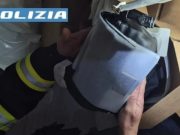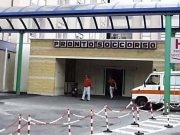I Carabinieri for the Protection of Health have conducted an extensive inspection campaign in the production and commercialization sector of wines, concurrently with the seasonal period of harvesting raw materials and the start of the production phase of wine products.
The national scale verification plan, carried out in September, represents an intensification of the inspections ordinarily conducted by the NAS in the specific sector, dedicated to verifying the existence of illicit or dangerous winemaking practices for health, aimed at safeguarding consumers and supply chain entrepreneurs who operate with correctness and commercial fairness.
The control activity also involved the provinces of Salerno, Avellino, and Benevento, where the NAS Carabinieri of Salerno carried out twenty-four inspections, of which 6 were found to be “non-compliant” (equal to 25%, a percentage influenced by the selection methods of the targets, identified among those that presented greater operational interest).
As a result of the irregularities found, six operators in the wine supply chain were reported to the Health and Administrative Authority and three administrative violations, totaling 4,500.00 euros, were contested.
The interventions made it possible to identify six companies that carried out their activities in production facilities that were, in various ways, lacking in hygiene and structure.
At the same time, wines without traceability and not listed in the cellar inventory registers were found, resulting in the seizure of approximately 500 liters of already transformed wine.
The commercial value of the suspended structure and the products subject to administrative seizure is estimated at 500,000.00 and 2,000.00 euros respectively.
The activities of the production, bottling, and trading chain of alcoholic beverages and wine where critical issues were detected are all located in the province of Salerno. In particular, at a winery, 360 liters of white and red wine were seized, lacking indications regarding traceability and serious hygienic and sanitary and structural deficiencies were noted, reported to the competent Local Health Authority which ordered a suspension of activity until the resolution of the issues.
At a second establishment, the presence of nineteen 500-liter barrels not included in the wine planimetry was found and, therefore, the Central Inspectorate for Fraud Repression was involved for the possible imposition of an administrative sanction.
In the remaining establishments, various minor issues were identified, such as the failure to update company self-control procedures, lack of extraordinary cleaning, structural deficiencies, and unequipped changing rooms and toilets, which led to the adoption of warning measures.























